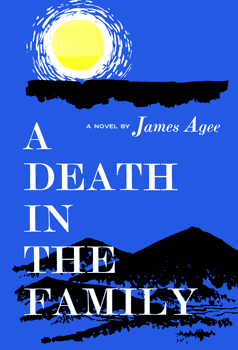Adaptations
The novel was adapted into All the Way Home by Tad Mosel. The play won a 1961 Pulitzer Prize.
A film entitled All The Way Home (1963), adapted by Philip H. Reisman, Jr. from the Agee novel and the Mosel play, was filmed in the same Knoxville neighborhood where Agee grew up.
A TV-movie presentation of All the Way Home, starring Joanne Woodward and Richard Kiley, aired on NBC in 1971 as a presentation of the Hallmark Hall of Fame.
A live version of the play aired on television in 1981 starring Sally Field and William Hurt. It was broadcast live on NBC from the Bing Theatre on the campus of the University of Southern California.
A TV movie adaptation filmed in Tennessee and starring Annabeth Gish, aired on PBS in 2002. [5]
Samuel Barber wrote Knoxville: Summer of 1915 (1947, revised 1950) on commission from the American soprano Eleanor Steber, who had asked for a work for soprano with orchestra.
William Mayer wrote an opera based on the novel; it premiered in 1983. [6]
A stage musical debuted in 2022 titled Knoxville , written Frank Galati with music by Stephen Flaherty and lyrics by Lynn Ahrens. A "universal coming-of-age story about family, faith and love—and the boy who will grow up to write it. With a sweeping musical score blending folk, bluegrass and ballads." Knoxville was in rehearsals for its world premiere at the Asolo Repertory Theatre in 2020 but was forced to stop because of the pandemic. The show had its world premiere in 2022. [7]
This page is based on this
Wikipedia article Text is available under the
CC BY-SA 4.0 license; additional terms may apply.
Images, videos and audio are available under their respective licenses.


